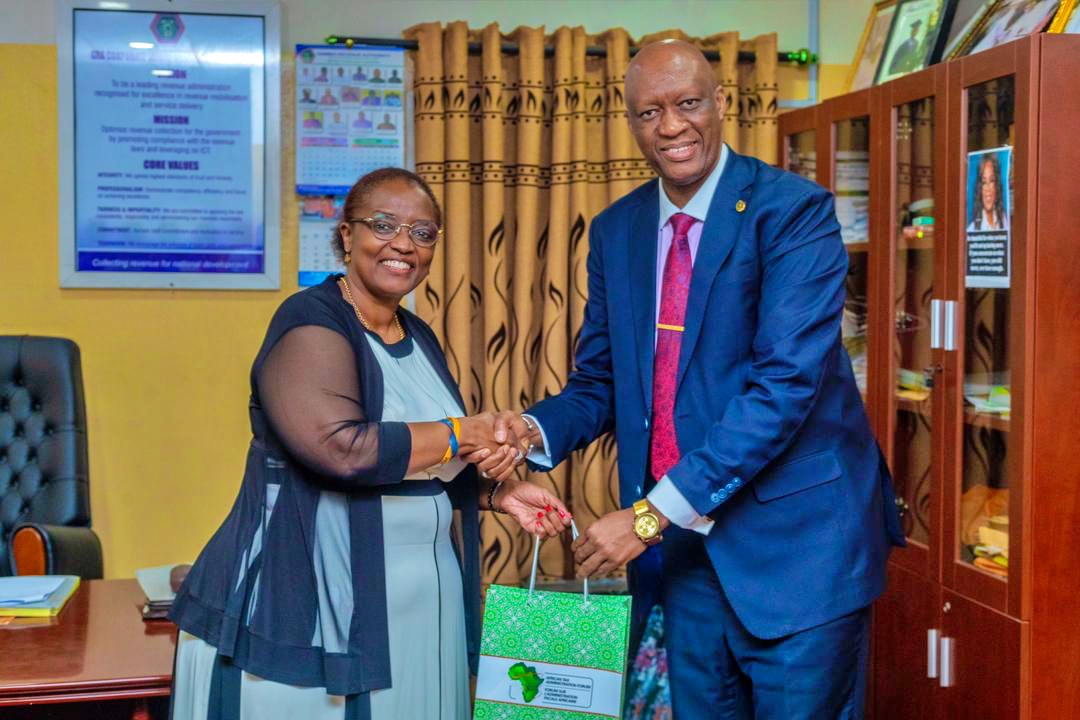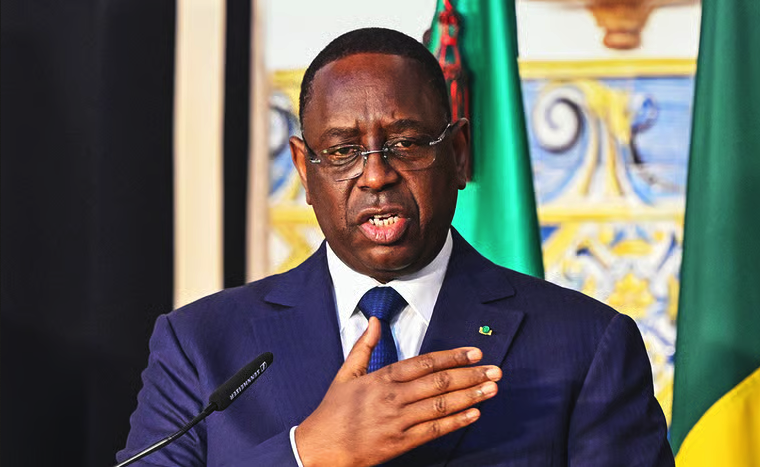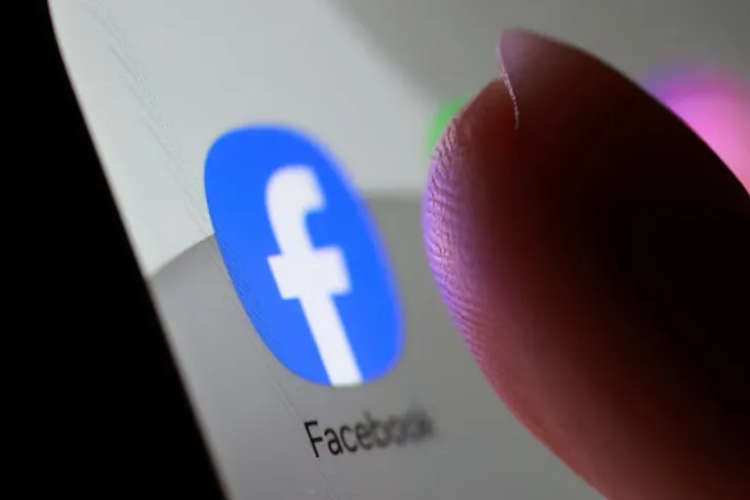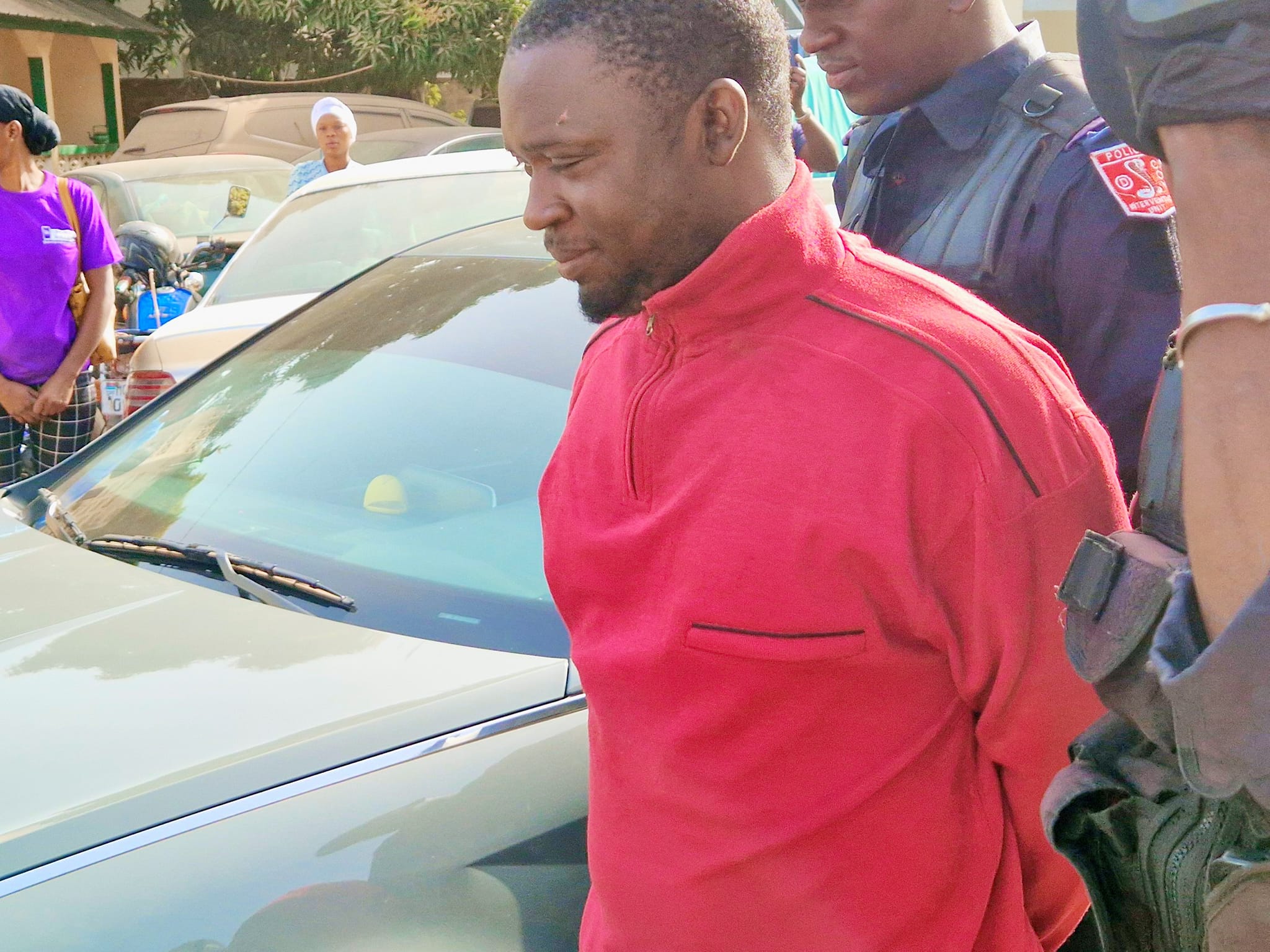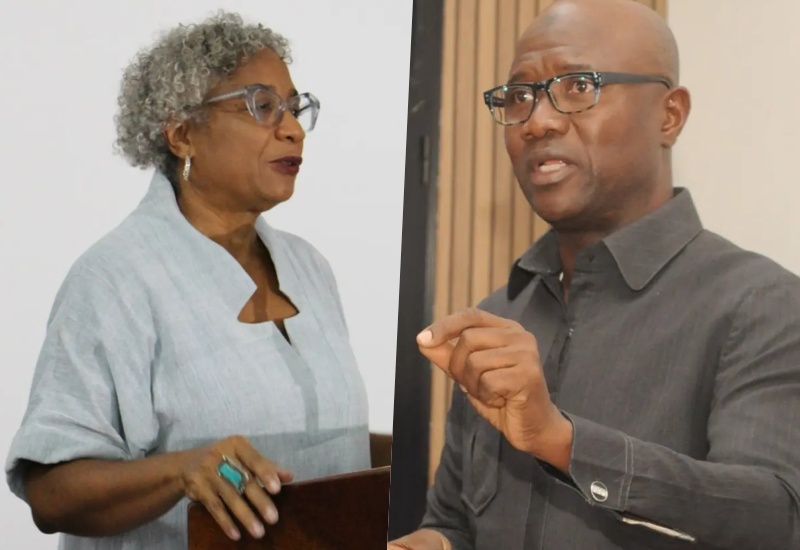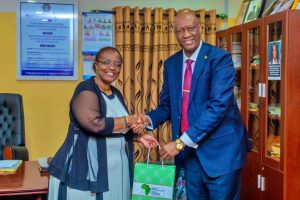Gambiaj.com – (Banjul, The Gambia) – A ProPublica investigation reveals a concerted effort by the U.S. government, spearheaded by Ambassador Sharon Cromer, to pressure The Gambia into granting regulatory approval for Elon Musk’s satellite internet company, Starlink. The campaign allegedly involved leveraging the review of crucial U.S. aid projects, raising concerns about the potential weaponization of foreign policy for private business interests.
In July 2024, The Gambia Journal revealed that Elon Musk, the proprietor of Starlink, and Hon. Dr. Mamadou Tangara, Minister for Foreign Affairs, had a virtual meeting on bringing Starlink to The Gambia.
Following the virtual meeting, Ben MacWilliams, Starlink’s Director of Global Licensing and Activation, met with Dr. Tangara at his office in Banjul on July 23, 2024.
This in-person meeting followed Mr. MacWilliams’ discussions with the leadership of the Public Utilities Regulatory Authority (PURA) and the Minister for Information, who then oversaw the Ministry of Communications and Digital Economy.
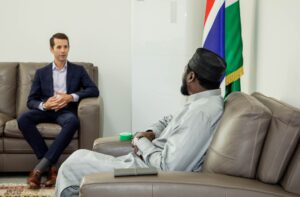
What we did not capture at the time around the issue was the backdoor intense pressure and quid pro quo to ensure the Gambia bends to Elon Musk’s desiderata.
The ProPublica investigation reveals that pressure intensified following President Donald Trump’s inauguration in early February.
Ambassador Cromer visited Communications Minister Lamin Jabbi, whose ministry oversees Starlink’s license application, which had been stalled for months after Elon Musk and Mamadou Tangara’s virtual call.
According to multiple sources and contemporaneous notes, Cromer alluded to the ongoing review of U.S. support to The Gambia, including a significant $25 million project aimed at improving the nation’s electrical system.
Minister Jabbi’s Permanent Secretary, Hassan Jallow, interpreted Cromer’s message as a veiled threat. “The implication was that they were connected,” Jallow told ProPublica, suggesting that the approval of Starlink’s license could influence the continuation of vital U.S. funding.
ProPublica’s investigation further uncovered that senior State Department officials in both Washington and The Gambia have actively coordinated with Starlink executives to lobby and pressure at least seven Gambian Cabinet ministers.
One of these ministers, speaking anonymously, described the government as being under “maximum pressure” to concede.
The campaign escalated in mid-March when Ambassador Cromer directly appealed to Gambian President Adama Barrow. In a letter obtained by ProPublica, she urged the president to bypass Minister Jabbi and “facilitate the necessary approvals for Starlink to commence operations.”
This move came after a contentious meeting in Washington D.C., between Starlink representatives and Jabbi, ended without resolution. Sources close to Jabbi indicated he felt the ambassador was attempting to undermine his position and potentially have him removed.
This aggressive push on behalf of Starlink marks a significant departure from standard diplomatic practice, according to ten current and former State Department officials interviewed by ProPublica.
They expressed alarm at both the tactics employed and the direct benefit to Musk, a prominent Trump advisor and the world’s wealthiest individual. “If this was done by another country, we absolutely would call this corruption,” stated Kristofer Harrison, a former high-level State Department official from the Bush administration.
The State Department, in response to ProPublica’s inquiries, issued a statement praising Starlink as an “America-made product” that is a “game changer” for remote connectivity.
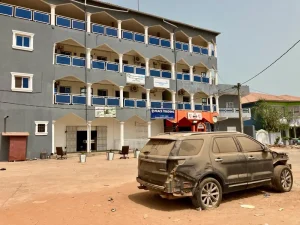
The spokesperson added, “Any patriotic American should want to see an American company’s success on the global stage, especially over compromised Chinese competitors.”
Neither Ambassador Cromer, Starlink, nor the Gambian president’s office responded to requests for comment. Minister Jabbi made his deputy, Jallow, available for discussion.
While the State Department under the Biden administration also assisted Starlink with navigating international bureaucracies, internal records and officials suggest a notable increase in the assertiveness and scope of this support since Trump’s return to power.
The situation in The Gambia underscores a broader pattern. ProPublica’s reporting indicates that since Trump’s inauguration, U.S. embassies in at least four other developing nations have intervened on Starlink’s behalf.
Diplomats have reportedly pressed governments to expedite licenses and facilitated direct engagement between company representatives and foreign leaders. In some instances, U.S. officials have explicitly stated that assisting Starlink could be seen by their foreign counterparts as a demonstration of their commitment to strong U.S. relations.
In one instance last month, the U.S. embassy in an unnamed country boasted about Starlink’s license approval despite the company allegedly not adhering to regulations that its competitors were obligated to follow.
For The Gambia, a young democracy of 2.7 million people still recovering from decades of authoritarian rule and grappling with widespread poverty, the telecom sector is crucial, contributing at least 20% of the nation’s tax revenue.
While proponents of Starlink argue its technology could revolutionize internet access in the country, critics fear the potential impact on existing local providers, a vital source of employment and infrastructure investment. Concerns have also been raised about handing control of internet infrastructure to a powerful and at times unpredictable figure like Elon Musk.
Despite the intense pressure, Minister Jabbi has refused to budge and has so far resisted granting the license. His deputy, Jallow, emphasized that the ministry is not inherently opposed to Starlink but is committed to ensuring due diligence and adherence to regulations before approving such a significant change.
The U.S. government’s efforts have recently continued, in late April, with Gambia’s attorney general, Dawda Jallow, reportedly meeting with senior State Department officials in Washington D.C. to further discuss the Starlink issue.
The aggressive tactics employed by the U.S. government have troubled some diplomats, who worry about the potential damage to America’s reputation and its relationships with allies.
One senior Western diplomat in the region described The Gambia as “a democracy, a natural ally” and “a prime partner of the West,” questioning the heavy-handed approach. “You beat up the smallest and the best boy in the class,” the diplomat remarked.
The ProPublica investigation paints a picture of the U.S. government actively leveraging its diplomatic influence and even the specter of aid cuts to advance the commercial interests of a politically connected American billionaire, raising serious questions about the ethical implications and potential long-term consequences for U.S. foreign policy and its relationships with developing nations like The Gambia.




